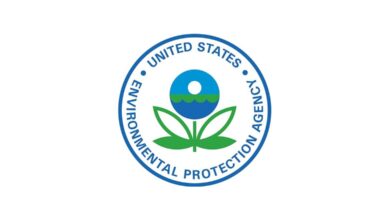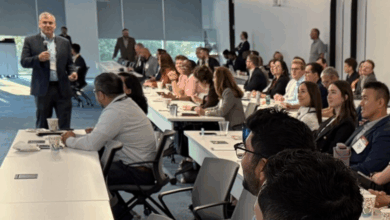BSEE, industry discuss BOP rules
Following an August meeting with James Watson, director of the US Bureau of Safety and Environmental Enforcement (BSEE), IADC, API, NOIA and the Offshore Operators Committee have sent a letter to the director reiterating industry concerns with possible requirements being included in upcoming proposed rules on BOPs.
During the meeting, BSEE had indicated that the agency was evaluating different and/or supplemental requirements for BOPs in addition to the requirements in the draft fourth edition of API Standard 53 (S53) even though S53 was in line with what BSEE was seeking.
The industry discussed how it had to work through the current rig fleet, the newbuild rigs and future technology developments in drafting S53 and utilized the process to solicit and address comments from industry. Plans are to release S53 in Q4 2012, and BSEE has stressed the need to publish S53 as soon as possible in order to align with the time frame of the rulemaking process for the new BOP rule.
Industry also explained its concerns around specific requirements related to pipe rams and shearing capability. Of particular concern is the potential requirement for much longer space-out between shear rams, which would significantly impact the existing floating rig fleet. With the large number of new rigs under construction, significant new requirements could necessitate extensive modifications with cost and schedule impact, industry stated.
Industry also maintained that the focus should remain on well control rather than shearing. Shearing the pipe is a last resort, and all effort should be made to maintain communication with the bottom of the well to control pressure instead. The industry wondered if well control scenarios and practices are being fully considered by BSEE while the agency drafts the new rules and highlighted the potential unintended consequences if the rulemaking process solely focused on the BOP emergency functionality.
The industry further expressed the need to address risk assessment in future rulemaking and provided an explanation about risk assessment requirements included in S53.
In response to BSEE’s stated interest in life cycle analysis of critical equipment, the industry discussed efforts to develop a new document, API 16AR, which would address repair and re-manufacturing of well control equipment.
Additionally, BSEE asked about industry investment in next-generation well control equipment and confirmed the proposed BOP rule addresses shear capability, automation and enhanced sensors. Industry comments are:
• Shear capability: Industry is strongly concerned about the focus on “shear certain” and believes greater focus should be placed on maintaining primary well control. The drive toward “shear certain” also can add significant complexity to an already sophisticated system, which in turn adds risks.
• Automation: Automating the entire well control process would be an incredibly difficult task given the uncertain and changing subsurface pressures, fluids, rock strengths, etc. Careful consideration must be made as to the level of automation being requested.
• Enhanced sensors: Manufacturers are already developing ram position indicators to monitor the “health” of subsea well control systems. Further research is needed to provide additional capabilities such as flow measurements as mentioned by BSEE and others.
Letter of concern sent to BSEE over expansion of authority over contractors
Sen. David Vitter, R-La., sent a letter to BSEE director James Watson in October 2012 indicating his concern with BSEE’s interim policy document on “Issuance of an Incident of Non Compliance (INC) to Contractors (IDP No. 12-07).”
Sen. Vitter stated that he is concerned with the expansion of BSEE’s current regulatory authority to include contractors. He also requested “adequate information justifying this policy, including the agency’s internal legal analysis,” as a means of transparency.
“The guidelines put forward by BSEE in IDP No. 12-07 are still non-specific to their intent and open ended in their application,” Sen. Vitter wrote. “As a result, the offshore service industry is in a quandary as to what liability for contractors will be in the future and what their vulnerability will be to agency actions.”
The senator also said that the offshore industry feels this policy “is a major, unprecedented departure from past practices on the US Outer Continental Shelf.”
Sen. Vitter suggested BSEE initiate a formal rulemaking process to promote transparency and allow all stakeholders the chance to provide their input before the agency enforces such a policy.
Implementation of MARPOL Annex V
The revised MARPOL Annex V on “Prevention of Pollution by Garbage from Ships” enters into force on 1 January 2013. The convention is applicable to MODUs. The revised regulations include a prohibition on the discharge to the sea of any garbage except in accordance with express conditions established by the regulation, institute a requirement for a ship-specific garbage management plan, including procedures for waste minimization and training, require posting of warning placards, and revise the requirements to maintain records of garbage discharge and transfer.
International standards activities affecting offshore drilling report
The new edition of the IADC’s semi-annual report “International Standards Activities Affecting the Offshore Oil and Gas Industries” is available online at www.iadc.org/iadc-committees/iadc-
offshore-operating-division/offshore-reporting/. This report provides a reference to standards development activities of various organizations with the potential to affect offshore oil and gas operations e.g., the International Maritime Organization, International Labour Organization, the International Organization for Standardization and various international trade associations.
This latest edition includes information on the International Maritime Labour Convention, MARPOL Annexes V (Garbage) and VI (Air Pollution), the Ballast Water Management Convention, MODU Code amendments for confined space entry rescue drills, new IMO requirements for lifting appliances and newly issued ISO standards on conformity assessment, quality management and site assessment for jackups.




